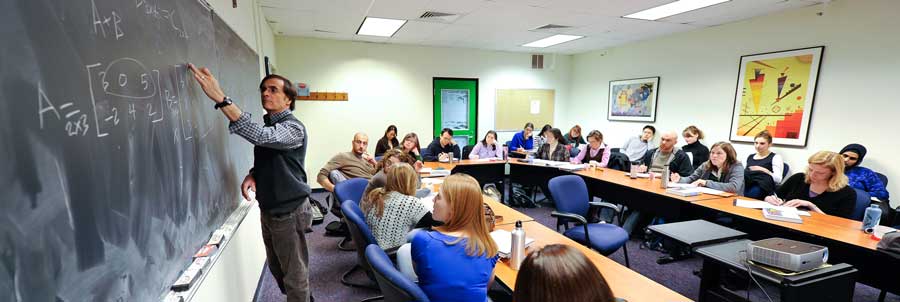
Strategic Initiatives
MassTransfer is a collaboration between the Commonwealth's community colleges, state universities and the University of Massachusetts. System-wide resources and policies allow for students to transfer seamlessly, stay on track, and earn a bachelor’s degree on time. MassTransfer policies seek to recognize the time and effort of students by ensuring their credits transfer between public institutions.
Arthur Esposito
Director of Academic Affairs & Student Success
aesposito@dhe.mass.edu
2012 – Present
Multiple Campuses
In 2008, the Board accepted the final report from the Commonwealth Transfer Advisory Group, which included a series of recommendations like the creation of the MassTransfer policy. A year later, the Department of Higher Education launched the MassTransfer website and efforts were focused on implementing the new policy. In 2012, community colleges began to work on segment-wide course equivalencies and the Legislature later funded this work through the Higher Education Innovation Fund, formerly know as the Performance Incentive Fund. The goal of this work was to further ease the process of transfer among Massachusetts public colleges and universities governed by the MassTransfer policy, which currently maps equivalencies at the program level (full transfer of credit between linked associate’s and bachelor’s programs) and at the general education level (full transfer of credit for a defined set of core requirements accepted at all campuses).
A2B (Associate to Baccalaureate) Pathways builds on the work of the Common Course Numbering initiative. It was developed by the Massachusetts Department of Higher Education in close collaboration with the 29 public campuses, with the goal of going beyond the simple cataloguing of courses and increasing student success.
The basic approach undertaken in creating A2B Pathways among the public institutions of higher education in the Commonwealth relies on three distinct components that build upon each other. These three components consist of the following:
For more information about this initiative, read ![]() Creating a Unified System of Transfer for the Commonwealth.
Creating a Unified System of Transfer for the Commonwealth.
| Stage | Cycle I Pathways | Cycle II Pathways | Cycle III Pathways | Cycle IV Pathways |
|---|---|---|---|---|
| Biology, Chemistry, Economics, History, Political Science, and Psychology | Business, Computer Science, Communication and Media Studies, Criminal Justice, Early Childhood Education, English, Liberal Arts, Mathematics, Sociology, STEM Metamajor in Natural and Physical Sciences | Art, Education, and Engineering | Nursing and Human Services/Social Work | |
| MassTransfer Pathways Fall Conference with Faculty Representatives and Transfer Professionals | Fall 2014 (Session Notes) |
Fall 2015 (Session Notes) |
Fall 2016 (Session Notes) |
Fall 2018 (Session Notes) |
| MassTransfer Pathways Convenings by Discipline - Develop Statewide Equivalencies for Foundational Courses | Spring 2015 (Session Notes) |
Spring 2016 (Session Notes) |
Spring 2017 (Session Notes) |
Spring 2018 (Session Notes) |
| 60-Credit Pathways Posted on MassTransfer Pathways Website | Fall 2016 | Fall 2017 | Fall 2018 | Fall 2019 |
| Review (every two years) | Fall 2017 (Session Notes) Spring 2018 (Session Notes) |
Spring 2019 |